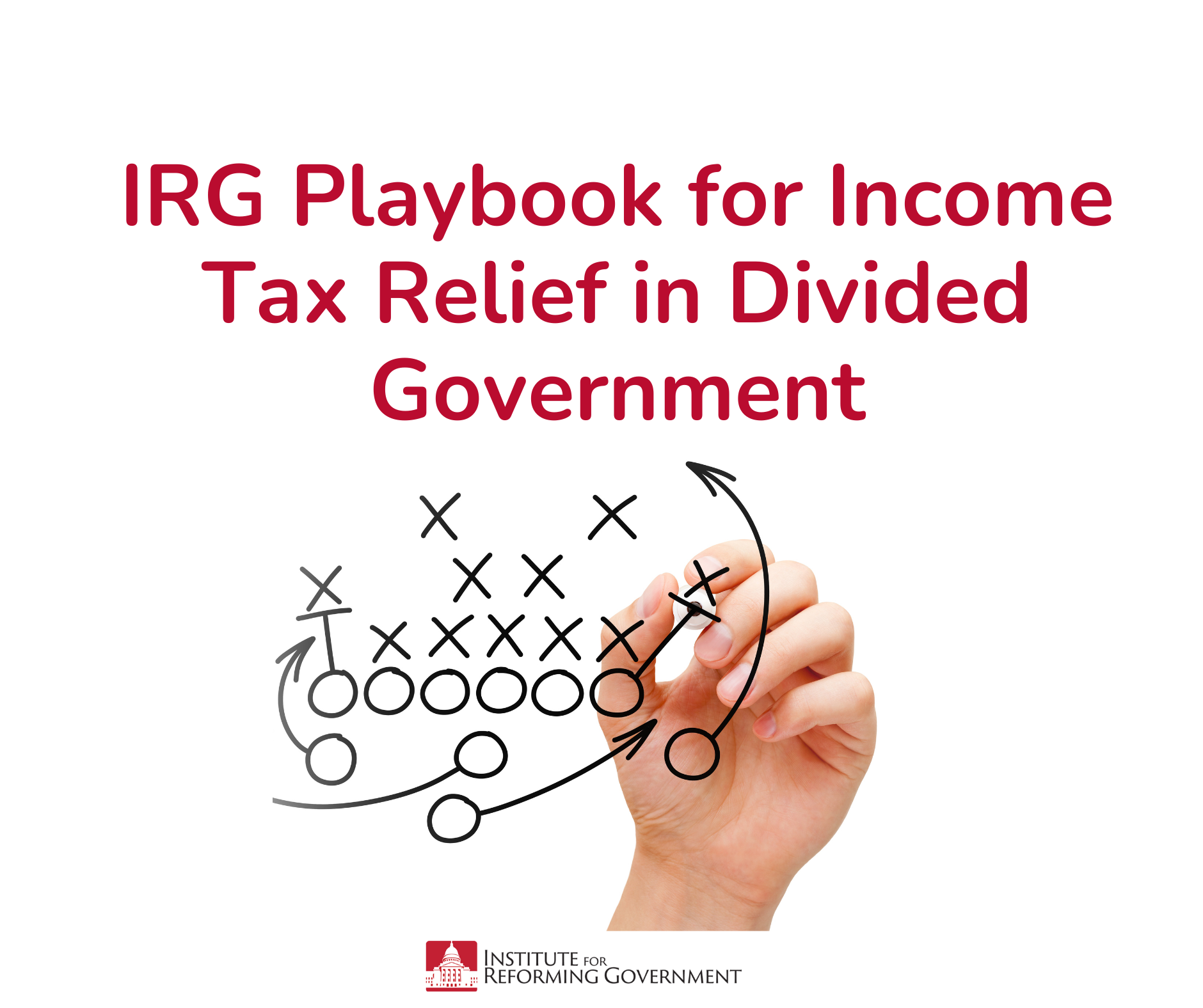This post originally appeared at https://reforminggovernment.org/irg-releases-playbook-for-income-tax-relief-in-divided-government/

Historic Tax Relief for Middle Class, Small Businesses Within Reach
Delafield, WI – Today the Institute for Reforming Government (IRG) released a new policy playbook on income tax relief. It includes three new tax proposals for policymakers’ consideration, each of which would provide historic tax relief to middle class families and small businesses while providing a shot in the arm to the state’s economy. The proposals have been analyzed by the economists at the University of Wisconsin-Madison’s Center for Research on Wisconsin’s Economy (CROWE) to determine their impact on workers, families, and the economy.
WHAT IT IS
As the tax reform debate in Madison has stagnated, IRG’s playbook outlines new alternatives for consideration that will reduce taxes on all workers, providing historic relief for middle class families and small businesses.
The plays:
Play 1. Reduce all brackets by 1.5 points. $716 annual tax cut for a median family, $2.75 billion overall tax relief.
Play 2. Eliminate one bracket, reduce remaining to 2%, 4.5%, and 6.15%. $669 annual tax cut for a median family, $2.66 billion overall tax relief.
Play 3. Eliminate two brackets, set remaining brackets at 2% and 4.5%. $635 annual tax cut for a median family, $2.91 billion overall tax relief.
WHY IT MATTERS
Plans have already been on the table, including IRG’s 2021 plan to completely eliminate the personal income tax, Senator LeMahieu’s flat tax proposal, and Gov. Evers’ targeted 10% tax cut budget proposal. With inflation still high and a recession looming, Wisconsinites need policymakers to act. IRG’s new playbook and the corresponding analysis from CROWE show how policymakers can come together to provide historic relief to the middle class, a policy supported by Wisconsinites.
In recent statewide polling by Morning Consult, 70% of Wisconsinites said they believe that lowering the income tax would help alleviate the worker shortage and 75% said they supported lowering income tax. In December of 2022, 59% of Wisconsinites thought that the state’s income taxes were too high.
WHAT’S NEXT
It’s time to pick a play. Lawmakers are currently debating the 2023-2025 state budget, with the new fiscal year starting on July 1. There is a great opportunity for policymakers to do what they did in 2021 and enact significant bipartisan income tax relief. With a looming recession, high inflation, and a $6.9 billion state surplus, the opportunity for bold bipartisan action has never been greater.
Governor Evers and Wisconsin lawmakers have a chance to put Wisconsinites ahead of special interests by taking strong action in 2023 on income tax reform. The plays outlined in this playbook give them options for success.